Introduction
West Africa has made significant progress in governance, peace and security in the last two decades. This is evident by the growing political culture of periodic elections, resulting in peaceful political transitions in countries such Benin, Cape Verde, Ghana, Liberia, Nigeria, Senegal and Sierra Leone. Notwithstanding this, the past five years has witnessed military takeovers that have truncated democratic governance in Burkina Faso, Guinea, Mali and Niger. While the consequences of military takeovers continue to evolve, the Economic Community of West African States (ECOWAS) has actively engaged and provided technical support to develop transitional charters aimed at restoring constitutional order in the respective countries except Niger. However, the transitional processes seem to have stalled especially in the three central Sahel countries, invoking critical questions about commitment of the transitional military governments to democratic governance and constitutional rule. This article examines the evolving context in the countries undergoing transitions, focusing on the potential for a protracted military transition in the region. It specifically explores the interventions of ECOWAS, the underlying factors contributing to the delayed transitions, and the prospects for restoring democratic governance amid the complex political dynamics.
Evolving Context of the Political Transitions
Following the military coups in Mali (2020 and 2021), Guinea (2021), Burkina Faso (2022), and Niger (2023), several efforts have been made by ECOWAS and other international partners to restore constitutional order. However, the pace and evolving political situation in these four countries since January 2024 shows that there are no clear signs that the military authorities intend to leave power any time soon. Already, Mali and Burkina Faso have publicly indicated that elections are not their priority until terrorist and other armed groups operating in their countries are defeated. They have both gone beyond their agreed transition timeline with ECOWAS – Mali since the end of March 2024 and Burkina Faso since early July 2024. In Guinea, a 24-month transition period was agreed with ECOWAS in late 2022 to start from January 2023. With few months to the official end of this timeline by December 2024, there are no concrete measures that could facilitate a return to constitutional order.
Similarly, in Niger, since the ousting of President Bazoum in July 2023, no clear roadmap has been put in place to determine the possible duration of the political transition in the country. Meanwhile, Burkina Faso and Mali have suspended activities of political parties supposedly to “preserve” national unity. Leaders of some major political parties across the four transition countries have been forced to exile while others have also been incarcerated and continued to remain in prison. Moreover, freedom of expression has significantly declined since private media and independent journalists became the potential targets of the military authorities in power. Renowned private radio and television stations ( Espace, FIM, Rodio Omega RFI , TV-5, France 24, Jeune Afrique) across Guinea, Mali, and Burkina Faso have been banned from broadcasting.
Aside the shrinking civic space characterized by the restriction of individual and collective freedoms, the economic situation is also worsening. Several businesses in the informal sector are reportedly collapsing due to shortage of electricity. The cost of basic food commodities have inflated with serious implications for cost of living in the region. Many citizens especially those in rural communities find it challenging to make ends meet, thus making them more food insecure than ever before. Moreover, the retaliatory decisions taken by some neighboring countries (Benin, Cote d’Ivoire) in respect of business transactions and other cross-border activities has also contributed to the economic challenges facing communities across Mali, Burkina Faso and Niger. For instance, relations between Benin and Niger, strained since the military coup of July 2023. Despite the lifting of ECOWAS sanctions, the border between Benin and Niger has remained closed. This closure continues to impact economic and commercial activities between the two countries. Since November 2022, the government of Mali owes 170 billion Franc CFA to the Ivorian Electricity Company (CIE) for the supply of 100 megawatts as part of an electricity interconnection agreement between the countries. The failure of the Malian government to settle its debts resulted in the reduction of 70 percent of the total power supply since December 2023. In a normal circumstance, this situation would not have resulted in such reduction in power supply to Mali, the countries (Cote d’Ivoire and Mali) would have found an agreement bilaterally to avoid any power cut that would affect Malians and small businesses owners in the country.
In September 2023, Burkina Faso, Mali and Niger formed the l’Alliance des États du Sahel (or Alliance of Sahel States, AES) as mutual defence arrangement to allow them to jointly fight terrorism and insecurity as well as help each other if any one of them comes under attacks. Subsequently, the three countries announced their withdrawal from ECOWAS in January 2024.
Interventions by ECOWAS
ECOWAS has played crucial roles by supporting member states to manage political transitions and other threats to peace and security in West Africa. Such support has led to positive outcomes as observed in previous political transitions in West Africa. Since the recent military takeover in Mali, Burkina Faso, Guinea and Niger, ECOWAS has engaged and supported the military regimes in Mali, Burkina Faso and Guinea to put in place a transition charter to guide the transition process. Its initial response included the condemnation of the coups, deployment of mediators/emissaries (official and unofficial) to engage with military leaders and the imposition of sanctions (diplomatic, economic and financial) in line with its protocol on democracy and good governance. Later, the sanctions were lifted for humanitarian purposes and some exemptions were made for the travel ban imposed on the Transition Presidents, Prime Ministers, Foreign Ministers and other targeted individual in Mali, Burkina Faso and Guinea. Despite these efforts by ECOWAS, the transition processes continue to be stalled with no clear directions for the transfer of power to civilians in the coups affected countries. However, it is important to underscore that unlike Burkina Faso, Mali and Niger, the Military government in Guinea have showed some level of openness for dialogue with ECOWAS. In July 2024 during the Heads of States and Government Summit, the Authority welcomed the relative progress made, including the planned holding of a constitutional referendum in 2024. To sustain this engagement, the Authority requested the Commission to dispatch a technical mission to deepen collaboration with the military leaders in Guinea in the context of the transition.
The Authority also instructed the ECOWAS Commission to urgently resume efforts to activate the ECOWAS Standby Force in its kinetic mode for counter-terrorism operations in Mali, Burkina Faso, Niger as well as other zones in the West Africa infested by terrorist groups. To keep pace with the same momentum, the Authority during its ordinary Summit on 5 July 2024, instructed the President of the Commission to facilitate engagements with AES countries on the procedures of withdrawal in line with Article 91 of the 1993 ECOWAS Revised Treaty. However, it also urged the AES countries to reconsider their decision, given the benefits that all ECOWAS Member States and their citizens enjoy for being part of the Community. Also, the Authority designated the President of Senegal, Bassirou Diomaye Diakhar Faye, in collaboration with the President of Togo, Faure Essozimna Gnassingbé, to facilitate ECOWAS engagement with the AES countries. It is important to underscore that, even before his official nomination as ECOWAS lead mediator, President Diomaye Faye had visited Mali in May 2024, then Burkina Faso where he called on the military leaders to strengthen cooperation and seek dialogue with the regional body. Even though AES countries withdrawal from ECOWAS seems to be a done deal and unnegotiable, the ECOWAS lead mediator seems to be optimistic about a positive outcome of the ongoing mediation efforts across Mali, Burkina Faso and Niger. To sustain his mediation effort with AES countries, President Diomaye Faye appointed a top Senegalese diplomate Professor Abdoulaye Bathily as his special envoy to discuss with the military leaders. As the deadline (January 2025) for the official divorce with ECOWAS fast approaches, it is uncertain whether a serious deal between AES countries and ECOWAS would be reached for Mali, Burkina Faso and Niger to reconsider their initial decision of withdrawing from ECOWAS.
Factors Prolonging the Transitions
Criticisms of ECOWAS Interventions
The military governments and their supporters opine that ECOWAS has been selective in its application of sanctions and insistence on adherence to its protocols. They argue that elected civilian leaders manipulate constitutional term limits to extend their stay in power without inviting ECOWAS sanctions that seem, in their view, reserved against military regimes that overthrow such governments. In addition to these criticisms, many citizens, especially in the AES countries, have also expressed some level of dissatisfaction about the lack of proactiveness of ECOWAS in resolving threats to peace and security in the region in the past decade. The citizens are of the opinion that the regional bloc has been unable to prevent tenure elongation, through constitutional manipulation and controversial electoral laws that often create conditions for unconstitutional change of governments in West Africa. These criticisms seem to have undermined ECOWAS moral authority and leadership in the efforts to press member states to restore constitutional order within reasonable timelines.
Formation of the Alliance of Sahel States
The recent military coups followed by the withdrawal of Mali, Burkina Faso and Niger from ECOWAS and subsequent creation of the Alliance of the Sahel States (AES) continue to hinder ECOWAS’ efforts to constructively engage the military leaders. In the announcement of their withdrawal from ECOWAS, they argued that this decision is in response to ECOWAS threat of military intervention to reverse the coup in Niger. The military governments argue that ECOWAS has become a threat to peace and security in the region. As indicated earlier, they have accused ECOWAS of only applying sanctions against military regimes that overthrow elected governments and not elected leaders (civilians) who manipulate constitutional term limits to extend their stay in power. Consequently, the three countries announced the creation of a joint anti-terrorist force on 6 March 2024. A treaty institutionalising the AES Heads of State Summit and turning it into a confederation was adopted on July 6, 2024, in Niamey, Niger. During this first summit, the Heads of State agreed to mutualise their efforts to invest resources in the areas of agriculture, water, energy and transportation, among others. The conclusions of this summit suggest that AES member countries may have taken a journey of no return. This evolving situation has made it extremely difficult for ECOWAS and its partners to mediate and exert diplomatic pressure on the transitional authorities to adopt and adhere to transition timelines to restore constitutional order. In addition, the decision by the AES countries has weakened the region’s collective capacity to deal with security and economic challenges, further aggravating the humanitarian situations confronting West Africa.
The complex security challenges
The military authorities in the four transition countries in West Africa used insecurity and/or bad governance in their respective countries to justify their takeovers. However, current trends in security dynamics in the AES countries reveal a surge in insecurity and violence. Despite military operations conducted against armed groups, terrorist attacks, kidnapping, cattle rustling, and other forms of banditry continue to increase and spread across these AES countries and even threaten coastal countries in West Africa. Between January and August 2024, for instance, over 673 armed attacks were recorded across Mali, Burkina Faso and Niger during battles between state security forces and armed groups operating in the Sahel region. These violent incidents led to over 2,272 deaths including civilians, suspected terrorists and security personnel. In addition to the death toll, more than 1807 people, including civilians, were injured from the armed violence. In terms of abduction and kidnapping, over 101 incidents were recorded in Mali, Niger and Burkina Faso. The deteriorating security situation has been used by the AES countries to justify the postponement of elections. In the latter part of 2023, Captain Traore of Burkina Faso for instance explicitly stated on state TV that elections are ‘not priority’ compared to security. According to him ‘there won’t be an election that is only concentrated in Ouagadougou and Bobo-Dioulasso and other nearby towns’, when a sizeable part of the territory is inaccessible.
Lack of Coordinated international Response
The current geopolitical rivalry and competition between Russia and the West has also undermined regional, continental and international efforts towards democratic transitions in the four countries. While the AES countries feel protected by their alliance with Russia, their relationship with the West remains fractured. This development has significantly undermined ECOWAS and AU’s efforts to effectively engage stakeholders across coups affected countries to transition to civilian rule. In addition, it is also important to underscore that the lack of coordination of responses between ECOWAS and AU on the military interventions especially in Niger has seriously undermined ECOWAS political influence. Even though ECOWAS initial sanctions were endorsed by the AU, when ECOWAS threatened to intervene in Niger, AU did not endorse the idea. The AU rejected any external interference in the situation by any actor or country outside of Africa because of its potential to exacerbate the insecurity and political instability in the Sahel region. Arguably, the threat by ECOWAS to intervene militarily in Niger would have worked if there was a coordinated international support.
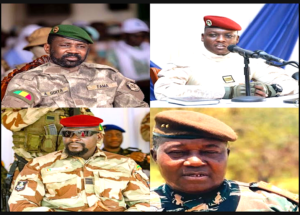 Source: La Guinée Conakry et l’AES, Justina Official
Source: La Guinée Conakry et l’AES, Justina Official
Is there a way back?
The lack of sincerity and willingness of the military authorities to transition power to civilian authorities continues to prolong the transition process without any clear date for democratic elections. Moreover, the factors prolonging the transition continues to impact on ECOWAS’s efforts to continually maintain engagement and keep pace with the evolving political situations in Burkina Faso, Mali, Niger and Guinea. Given the prevailing situation in the four transitional countries and the diminishing influence of ECOWAS, there is no doubt that the ongoing transitions are likely to be protracted with implication for the democratic governance in West Africa.
To reverse the situation, there is the need for a renewed discussions around the entire transitional processes with particular focus on the proposed roadmap between ECOWAS and the military regimes. This will create new opportunities for more constructive engagements that could possibly lead to consensus building among the key stakeholders (national and international) for more inclusive and peaceful transition. Furthermore, it is crucial for the ECOWAS Commission to speed up the activation process of its Standby Force to undertake counterterrorism operations in support of AES countries to combat the increasing threat of terrorism and violent extremism. The operationalization of the ECOWAS Standby Force could create an environment conducive for dialogue and exchanges between ECOWAS Commission and the AES countries on issues of common interest affecting West Africa. This may appear unrealistic as the current deadlock between AES member countries and ECOWAS continues to unfold. However, there is high possibility based on the current peace and security development as well as the sociopolitical dynamics in the region, for the AES members to reconsider dialogue with ECOWAS. Therefore, the ongoing mediation effort by President Diomaye Faye with AES countries should be sustained and supported by international partners.
To complement the regional efforts, regional CSOs including the West Africa Network for Peacebuilding (WANEP), West Africa Democracy Solidarity Network (WADEMOS), and West Africa Civil Society Institute (WACSI) are encouraged to work with local CSOs including religious leaders, women’s and youth groups to engage the authorities of the AES countries at different levels on the need to resume talks with ECOWAS to chart a new path towards return to constitutional rule. Such engagement could also include advocacy on the importance of regional integration in fostering peace and security, socioeconomic development and socio-mobility. The purpose should be to influence the decision of the AES countries to rescind their decision to quit ECOWAS and agree on a reasonable timeframe for a return to constitutional rule.
Author
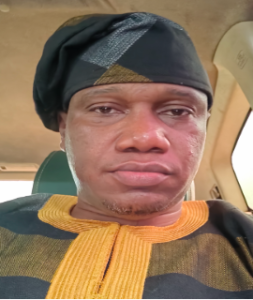
Ansoumane Samassy SOUARE,
Regional Analyst, Democracy and Governance-WANEP
Disclaimer: The views expressed in this publication are those of the author and not necessarily those of WANEP. While every attempt has been made to ensure that the information published is accurate, no responsibility or liability is accepted for any loss, damage or disruptions caused by errors or omissions whether such errors or omissions result from negligence, or any other cause.
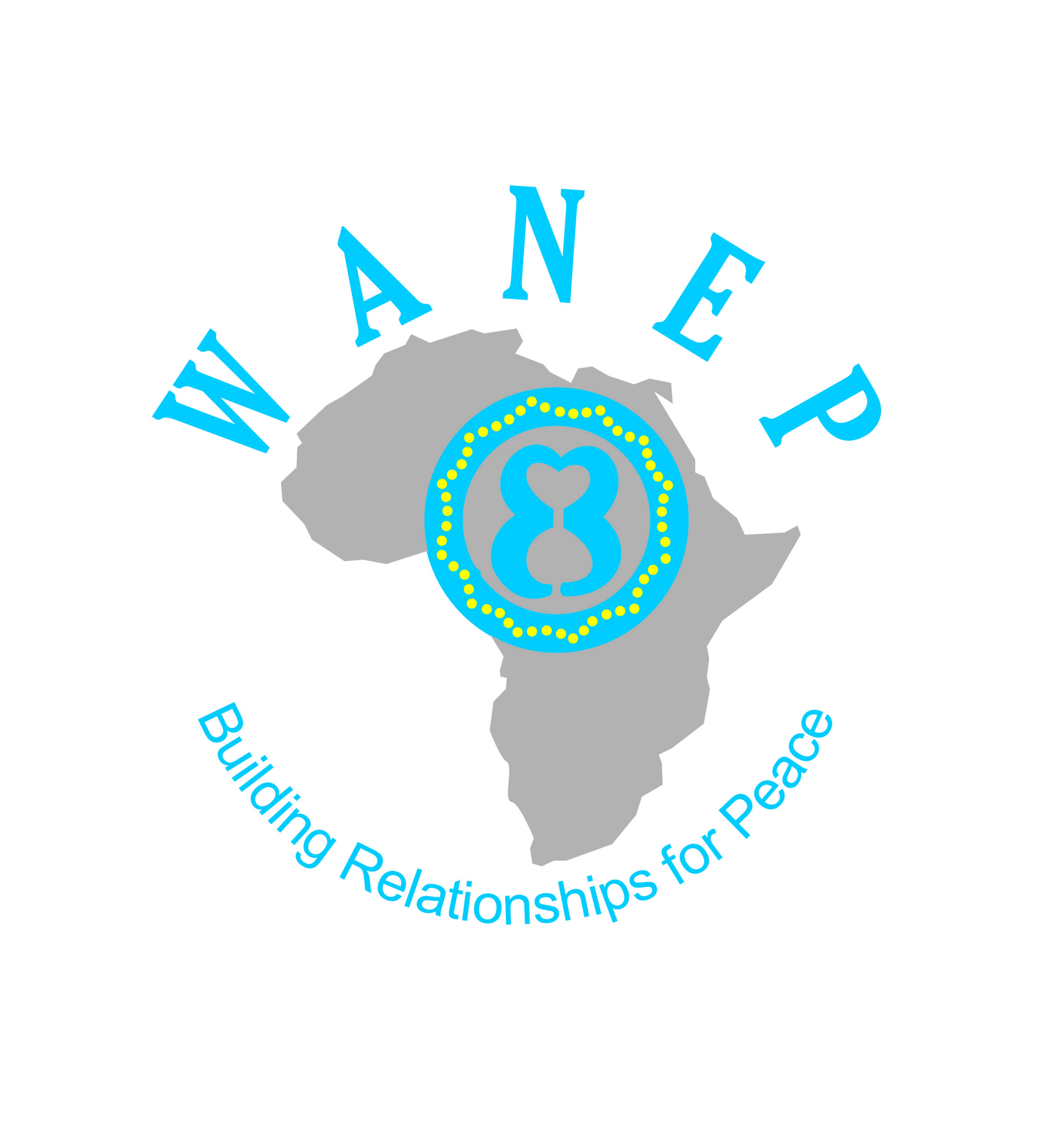

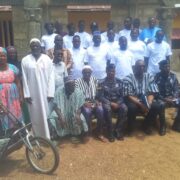

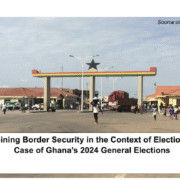
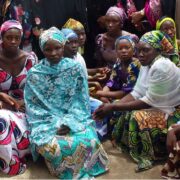
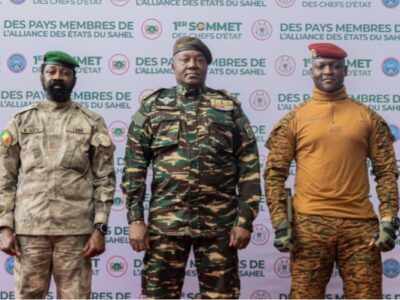

Comments